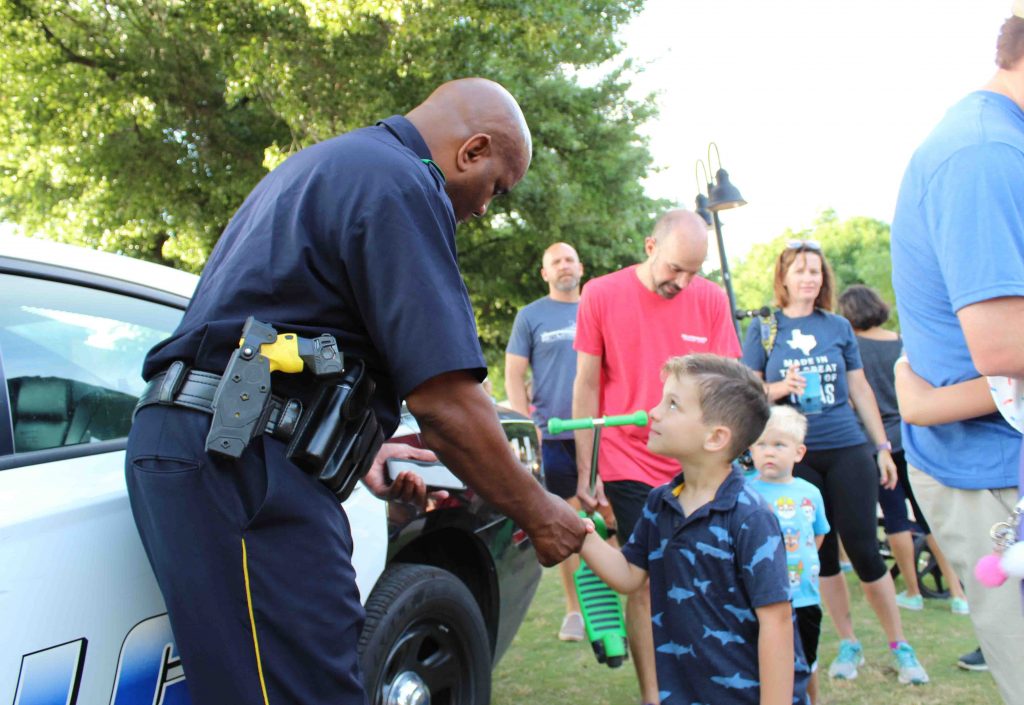

By Sgt. Betsy Brantner Smith (ret.)
If you’re a cop these days you must feel like a stuffed dog toy in between two pit bulls playing “tug of war” at the dog park. We’re being randomly pulled in every direction, and frankly, it’s exhausting, but it’s hardly a new development.
When I was a little kid in the 1960’s I remember watching news reports of “counter culture protests” where law enforcement officers were being called “pigs” and getting spit on. In the 70’s I was a teenager (and thinking about becoming a cop) when I was told that police officers were sexist jerks who didn’t want women on patrol. When I became a cop in 1980 I got called everything from “the man” to “Gestapo.” And like every other cop in the country, I ignored the name calling and just did my job.
American law enforcement officers have always been political and media pawns. Watergate, Waco, Ruby Ridge, Elian Gonzales, September 11, Ferguson, Kaepernick, the list is long and seemingly endless. People love us and they hate us. And now, thanks to the proliferation of social media in our lives, there are millions of keyboard warriors out there ready to second guess our every move and decide what we should have done before we’ve even cleared the scene! Some call us “racists” and “thugs” and “killers.” Others call us “heroes” and thank us for our service. And what do we do about it? We just keep doing our damn jobs.
I’m retired now, but I’m privileged to travel extensively, meeting and training police officers and dispatchers throughout the nation. When I chat with other retirees, the talk inevitably turns to the current state of policing. We all say “I don’t know how these young cops do it,” but I’ll be honest, I do know how they do it. They’re incredibly resilient, just like we were. Resiliency is essential to our ability to survive and thrive in this profession.
Dr. Al Siebert wrote an outstanding book called “The Survivor Personality” and then followed it up with an even better read, “The Resiliency Advantage.” He addresses how people can train themselves to become more resilient so that when adversity does happen in our lives, we are more than ready to deal with it. Think about how you to react to adversity. Do you freak out, shut down, get angry, become ill? We all react differently in different situations, but we need to make sure that we don’t allow ourselves to become hopeless victims, just moving through our career (and our life) reacting to whatever comes next. Also essential to “resiliency” is a true sense of “mission.” Cops have to be many things to many people; we’re expected to make life and death decisions in less than a second. We also must know how to change a tire, deliver a baby, comfort a victim, find a runaway, interrogate a child molester and so on, all without letting any of our personal beliefs show. It’s a tough way to live, but it’s what we signed up for. In other words, it’s our “mission.”
So how do you become more “resilient?” First of all, take a look in the mirror, learn to assess what Dr. Julian Rotter called your “locus of control.” Dr. Rotter developed the “social learning theory” that social context and environmental factors affect the way we behave as much or more than psychological factors. In other words, we have a great deal of control over our own thoughts, feelings and reactions despite what is happening internally and externally in our lives. Think about what you control and what you don’t. For example, you control how hard and how well you work, but you don’t control how people are going to react to or reward you for all that effort. Can you live with that? You don’t control your body; we all get sick or injured, but you can control how you treat that body. Can you commit to optimizing your own health and your ability to recover from injury or illness? These are just a few of the questions you need to ask yourself if you truly want to become not just a survivor, but a winner. Don’t let life just happen to you. Law enforcement is a great adventure. We serve, we protect, we save and we sacrifice; never lose sight of how many people support law enforcement. And for those of you who wonder “what can I do to better support my local cops,” see the person behind that badge and gun. Wave and smile when you see a cop drive by, shake their hand when you’re both in line for a cup of coffee, say “thank you” and “be safe,” wear a Thin Blue Line or “We See You” t-shirt. We’re going to continue to do our jobs regardless of what people say, but it’s incredibly heartwarming to know we have some public support.
History reminds us that police officers will always have to walk a tightrope in society, alternately taking some people’s freedoms away while restoring freedom to those who’ve been victimized. The fair and ethical enforcement of our laws are a necessary element of our way of life, and something to be incredibly proud of. Never forget the ultimate result of doing your job effectively is the continuation of a free society!